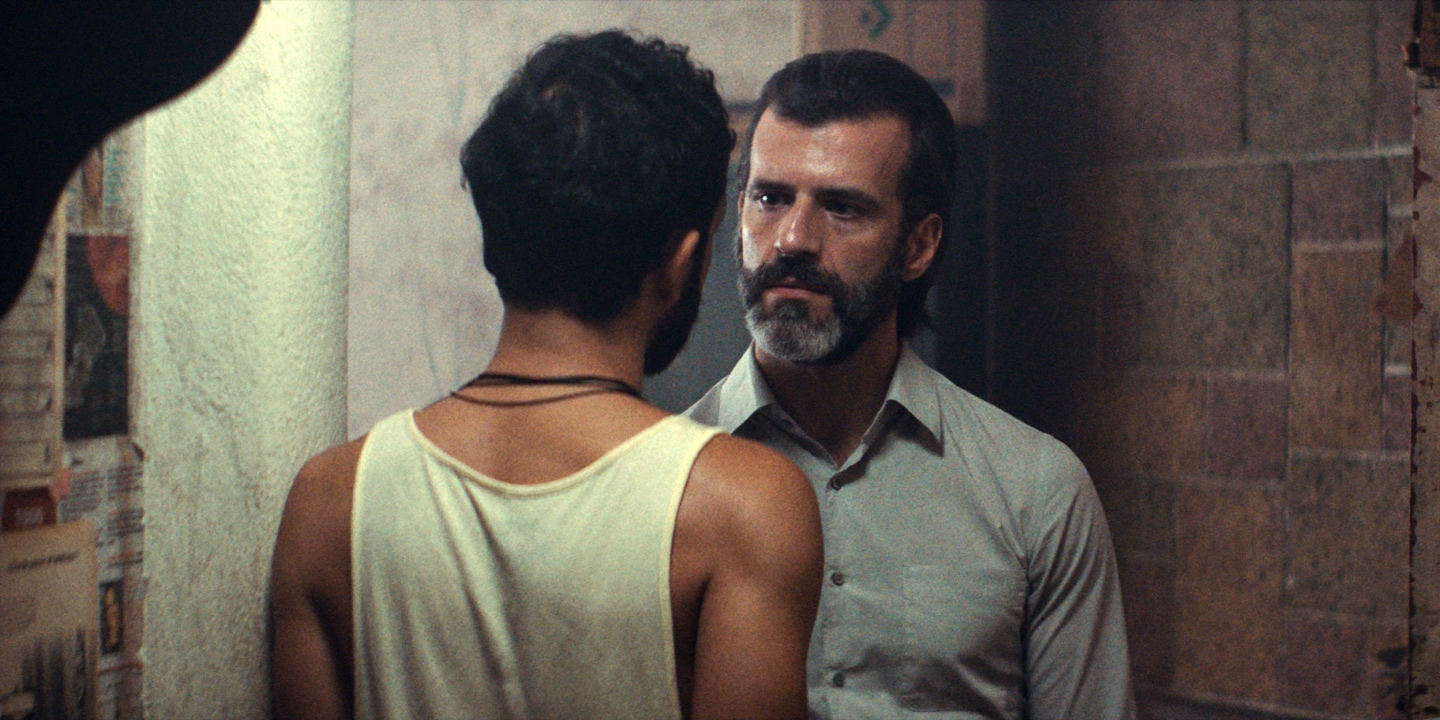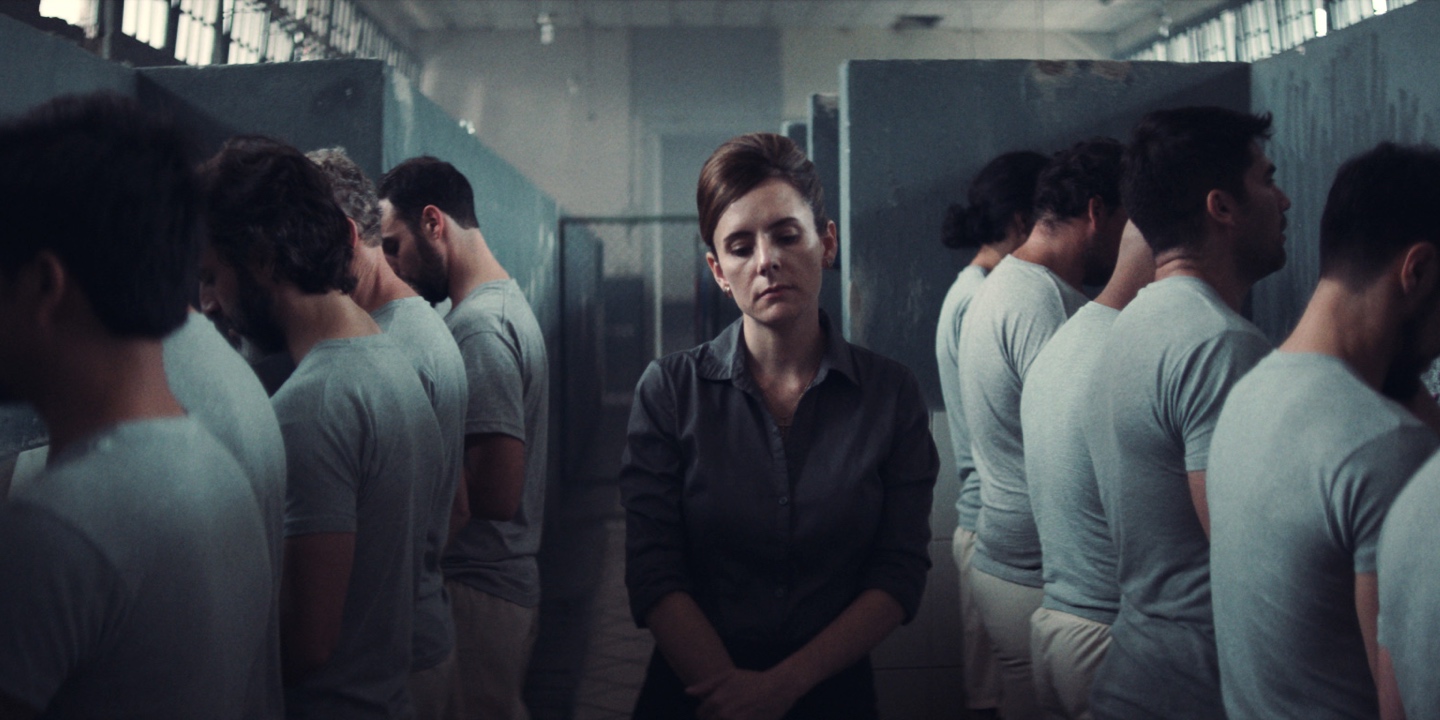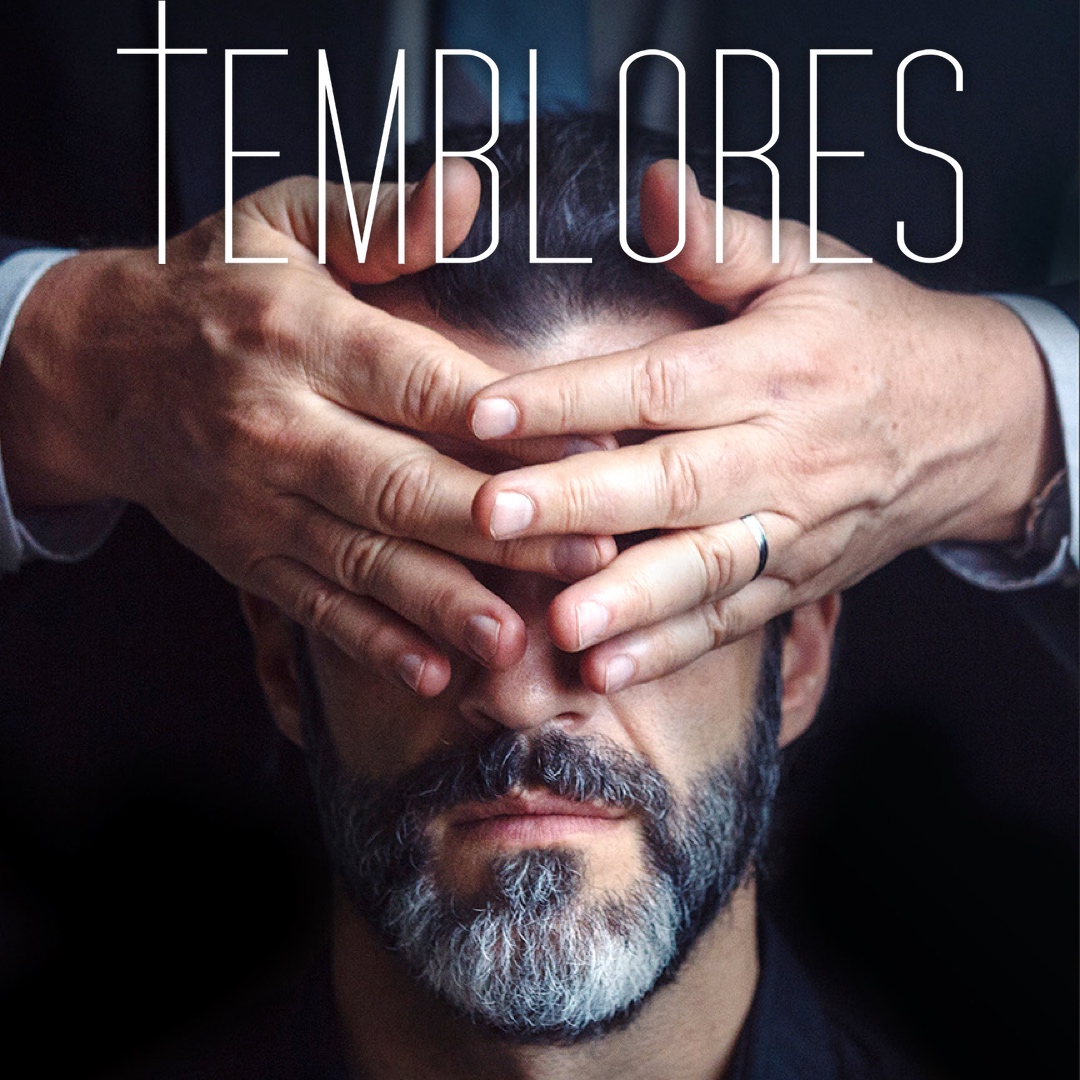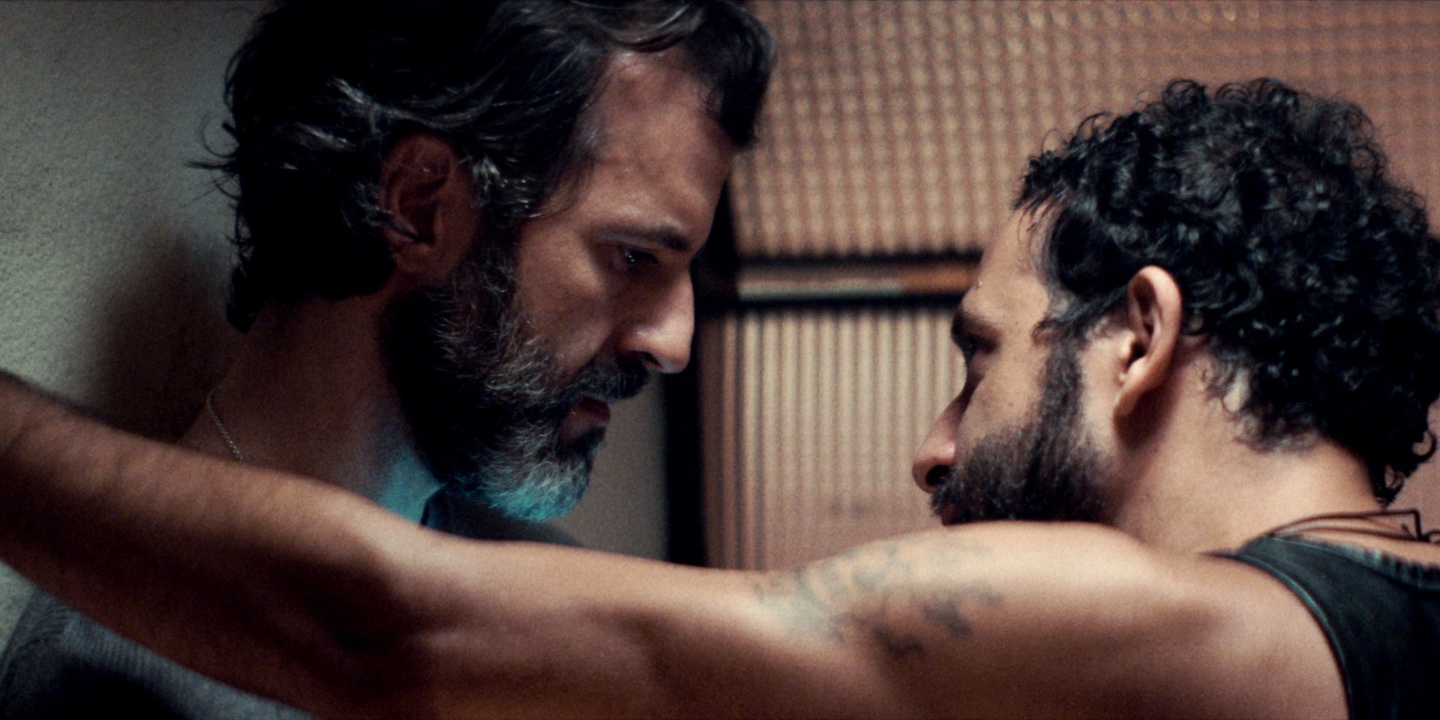Interview: Jayro Bustamante on 'Temblores'
 Monday, December 2, 2019 at 7:53PM
Monday, December 2, 2019 at 7:53PM 
In this followup to his debut Ixcanul (2015), Jayro Bustamante shifts his focus from rural Guatemala to Guatemala City and both its vibrant queer subculture and strict evangelical institutions that believe in a type of gay conversion therapy. Temblores is about Pablo a seemingly straight father and husband who tries to balance both his life as an out man and his responsibilities to his children and family and does not find an easy compromise. The film won the grand jury prize recently at NewFest, New York’s LGBTQ film festival, I was a member of that jury.
I recently spoke to Bustamnate about the film and how he based it on research and interviews with many men - he called them his Pablos which is the main character’s name - who were forced to come out and some faced rituals of conversion therapy to reconcile with their religous beliefs and with their Christian families. This interview has been edited and condensed for clarity.
Murtada Elfadl: The opening of the film is set up like a thriller. The audience is trying to figure out what’s happening. You withhold more than show and get everyone into the story. Can you talk about that choice and your inspiration?
Jayro Bustamante: For two reasons. One is I wrote the film in a subtle style. I had researched and investigated by interviewing 22 men that I called my Pablos. They told me their stories which were very melodramatic, like a telenovela. So I wanted to play with that and give the audience the opportunity to imagine that something really big has happened, and then to reveal that the whole fuss is just that he's gay. And the other reason was that I wanted to delay showing Pablo. All the guys that l interviewed were homesexual but very homophobic. So I wanted to play with this fact that they were ashamed to show themselves like they are. So I'm always showing Pablo from the side or the back or over his shoulders.The only time that he is shown from the front is when he has to confront his wife.

The press notes mention that the film is “deeply personal.” Can you talk about that and what inspired you?
It was very deeply personal story for me but not because it's a bio or something like that. It's just the research period was very complicated and the people I was talking to were suffering a lot. I became a kind of a catharsis for these people. The film became a treatment for them. They were very upset because a lot of time I was not really nice because I needed to confront them, saying to them you know, it's normal that your wife isn't very happy because you are lying to her, and you've built a facade. They were very upset about that because they wanted to complain and to be understood. I wanted to push them to be responsible about their decisions. None of them came out by themselves. They were discovered by their families. The responsibility of telling these people's stories is what made it personal to me.
Can you talk about balancing the perspectives in the film and how you accomplish that? I felt I knew the couple, the family, the whole community even if the story is ostensibly about Pablo.
I was trying to show that all these people, even if they are pushing somebody that they love to be hurt by an institution or by the church. Even if they hurt their own sons. They are doing that in a way out of love. And this kind of extreme way to love was interesting to me. Normally we always have the stereotype that mothers are more understanding and they are always protecting their children and fathers are more macho and aggressive. In my research the majority of the fathers were more pacifist. But the mothers were very upset as if the homosexuality of their sons was their responsibility and they had to change it. I wanted to show that because we have a different idea about a mother's love.

You mentioned the research and interviews you conducted. Your portrayal of the evangelist church felt like something I haven't seen before, but it also felt very real and realistic. Was it part of your research? How did you come about that?
I think you have this feeling because it's not really an evangelical church. I made a mix. I started researching in the evangelistic religion because the first Pablo I spoke to was evangelical. At the beginning of my research, I didn't know that Catholic people are using the same technique to cure homosexualiy, I became very interested in them too. There is a kind of progress, in the evangelistic church, though that's probably not the right word. They now think that homosexuality cannot be erased but you have to prove your love to God by living in a heterosexual way even when you are gay. I also researched what the Jewish faith did. So I decided to make it a mix using the rituals of the evangelical church because they are cinematic. And mixing that with Catholic icons and some Jewish prayers. I made a mix of the "treatments" they use to cure homosexuality too. I also talked with some psychologists who proposed treatments outside of any religions.
Yeah, the rituals are all very cinematic and it sort of puts you right there and you're a little scared not knowing what's going to happen next.
“I’m embarrassed when you look at me,” Pablo says to his wife. His shame is palpable and is the driving force for him. That really stayed with me. Can you talk about writing that and also working with your actor to play that?
Thank you for mentioning that. There is another scene that is equal to it. When they are going to the church and the mother says to him don't let people see your shame. And at the end it's always the same. It's guilt and shame. If you have these two then you can control people. The church understands that and society understands that too.

And with actors it was all the preparation. In Guatemala there is no movie industry, just two or three movies are made per year. So normally you choose talents and then work with them to become actors. And I think they are good actors and intelligent actors. But most importantly they are Guatemalans and we understand how society can repress you. So we looked for that feeling that we know very well.
Juan Pablo Olyslager gives a great performance as your lead character Pablo. Talk about your collaboration.
You know it was a difficult decision who to cast. 80% of the men who audiontiond told me that they wanted to be famous, but they don't want to play a gay role. That was very shocking. Within the other 20% I had some gays and some hetrosexual actors. I chose Juan Pablo because he's a wonderful actor and he was perfect for the character. But because he was hetrosexual it was very difficult because I didn't want to discrminate by not casting a gay actor. The decision was difficult but at the end I think it was a good one.
The look of the film, sort of dark, sort of Gothic. You feel the world that the characters are in. Can you talk about your choices about the look of the film?
I wanted to show how the characters feel in this kind of oppressive society. The fact that the story is set within an institution that has existed the same way for 50 years gave me the freedom to work within this aesthetic that is inspired by American films of the 70s. Like the visual elements of Sidney Lumet films. I decided to make the film darker and show a Latin American city that has lots of rain and people in heavy dark clothes. Because normally in countries like ours there is a lot of sun and people think that means happiness and freedom and it's not true. I wanted to reflect how the characters feel.
 Jayro Bustamante,
Jayro Bustamante,  LGBT,
LGBT,  NewFest,
NewFest,  Temblores,
Temblores,  interview
interview 


Reader Comments (7)
Great interview. Thanks Murtada!
I’ll be there for it at Laemmle Royal this weekend!
What an insightful interview. I just watched this a couple of weeks ago and I thought the pastor and her 'parrot were a hoot in a cruel way. This gay conversion thing is real. In fact, it's happening in Indonesia as we speak. They are rounding up gay men to be converted via their religion (Islam).
Really sad.
I'm really looking forward to this. Ixcanul is one of the best films of the last decade.
Definitely want to see this.
As a guatemalan, I am proud of Jayro, and what he has accomplished in just a few years, he is smart and talented. I've seen Temblores twice, and I have mixed feelings about it. Some things are great, others are... REALLY? IDK, too close to home I guess (for lots of reasons that have nothing to do with conversion therapy).
Great interview.
This movie is a gut-punch. Impeccably made but almost a horror story in its uncompromising depiction of homophobia.
I saw TEMBLORES at the Castro Theatre in San Francisco, with a thousand mostly LGBT people left completely wrung out at the end. It reminded me of an early Todd Haynes film, like SAFE, which leaves you adrift in a sea of devastation looking for anything to grab hold of.